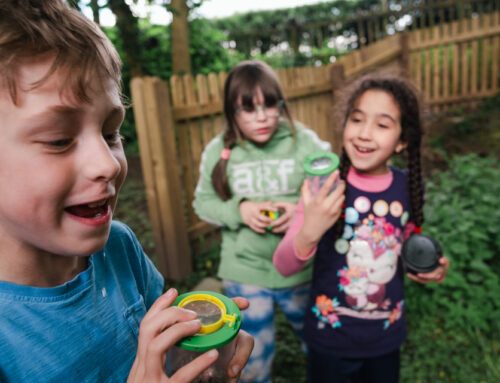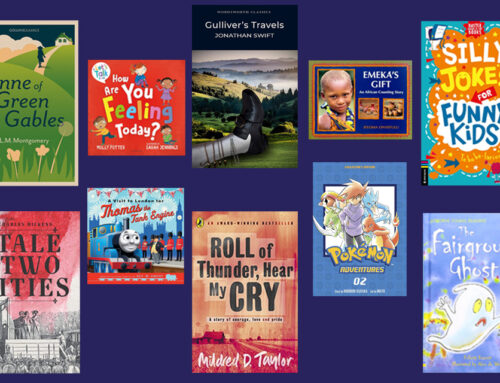From the Archive
This article originally appeared in the Spring 2009 print edition of NAGC Magazine. Resources have been updated February 2023.
Hi, my name is Allison.
I remember the day I withdrew my son from school; I felt as though I was the first and only person ever to have done so. I felt so alone.
As I walked out of the building, I was aware of an immense responsibility. Until then, my son had been taught by professionals all day; his curriculum (academic, sport and social development) had all been overseen by other people. Any fault in his progress or, even worse, his result at school leaving age, I could lay at their feet. Now there was no-one else to blame. I would have to accept full responsibility for how he turned out; it was an awesome feeling.
Ideas flooded my mind; mostly school-type ones. I thought
“I will have to find him a Maths curriculum to follow, buy all the workbooks and find the level he is happy to work at. For History, he would need an overview; maybe the origin of man and work up to the modern day. Or maybe I should restrict History to Britain, or another country?”
I decided Britain could be more useful to him as he might sound more learned if he knew his British history! I then conceded that it was more likely that the historical professionals (all those educationalists who spend their waking hours devising course curriculums), had probably already written the perfect route for me to follow. So I devised, “If I found out which era the school we left uses, then I can crib their ideas. Ah, I feel so much better.”
However, it was not so simple. To my surprise we spent the first 6 months doing no school-work of any kind.
Instead we spent a week building a life-size wigwam. And then we lived in it for a while; fortunately not overnight but actively during the day. We spent 5 hours at a time watching all sorts of insects; ants, woodlice, beetles. We gained a lot of insight into human nature! This activity went on for quite a while.
Then I saw some fruit of my time spent with my son. He began to talk. By this I mean, he talked of the days when he had been at school and I at home. He talked of how he had felt, the reality of school-life for him. For example the level of frustration he felt when he was forced to stop writing a story because the bell rang for end of class and his sadness that he couldn’t write down all his ideas. As we talked, he began to realise that at home, he could write as long as he wanted; there was no bell.
I heard how ghastly he found being bored. I know this is a common complaint amongst NAGC* school children at some time in their lives and because it can be common we may ignore it, but it was having consequences for my son. He found the work tedious, he saw his time as wasted and he was aware that he was missing the opportunity of discovering new ideas and information.
My son was only in his reception year. At school he was in a situation where he could not develop and grow, and to let him remain in that situation could have destroyed his brightness, his creativity, his identity as a unique person. I respected and listened to my son’s thoughts and feelings and saw his innate wisdom and insight. In many ways he was beyond his peer group and I knew that if we were to wait until his peer group caught up, so much could be lost.
I chose to home-educate my son because I saw his own identity and love of learning fading and I see these as too precious to be lost.
*NAGC – National Association for Gifted Children – is now known in the UK as Potential Plus UK.
Useful Resources (February 2023)
Although education for all children aged 5-18 is compulsory in the UK, that education is not required to be within a school setting, or to follow the national curriculum. The Association of Directors of Children’s Services estimated that in October 2021 that there were around 81,200 registered home educated children in England – a rise in numbers since the experience of Covid-19 lockdown.
Home Education is not an easy choice. Many parents of children with high learning potential home educate because their school setting has been unable to cater for their child’s needs or required style of learning, as was the case for Allison.
The following resources may be of use to you when thinking about home educating.
Robert Long, Shadi Danechi. Home Education in England (December 2022) Briefing paper for the House of Commons. https://researchbriefings.files.parliament.uk/documents/SN05108/SN05108.pdf
Potential Plus UK Advice Sheets
Useful Websites
- Ed Yourself – a resource looking at the legal aspects of home education and flexi-schooling https://edyourself.org/
- Education Otherwise https://www.educationotherwise.org/
- Home Education – Government UK https://www.gov.uk/home-education
- Home Education – BBC https://www.bbc.co.uk/news/topics/c8ee27rr4p7t
- Home Education Advisory Service https://www.heas.org.uk/
- Home Education in the UK https://home-ed.info/
- Home Schooling – articles on the Guardian website https://www.theguardian.com/education/homeschooling
- Home Schooling: Good for your Child & your Finances? https://www.money.co.uk/guides/home-schooling-good-for-your-child-and-your-finances.htm
- The Home Schooling Association https://www.homeschoolingassociation.co.uk/
Online Resources
Potential Plus UK – Learning Resources page https://potentialplusuk.org/index.php/learning-resources/
- BBC Learning Zone https://www.bbc.co.uk/programmes/p01b8f09
- BBC Schools Radio https://www.bbc.co.uk/programmes/p007g5y4
- Free Home Education Resources – EYFS, KS1 and KS2 https://freetimewiththekids.com/free-home-education-resources/
- Future Learn https://www.futurelearn.com/
- Khan Academy https://www.khanacademy.org/
- Nrich Maths https://nrich.maths.org/
- Oak National Academy https://classroom.thenational.academy/
- 100 Best Homeschooling Programs UK https://www.homeschoolof1.com/homeschooling-websites-uk/
- Open Learn https://www.open.edu/openlearn/
- Oxford Owl https://www.oxfordowl.co.uk/
- Reading Eggs https://readingeggs.co.uk/
- TED-Ed https://ed.ted.com/
- TheSchoolrun.com https://www.theschoolrun.com/getting-started-home-education-your-step-step-guide
- Twinkl https://www.twinkl.co.uk/resources/home-education
- UK Homeschooling Resources 2023 – eParenting https://www.eparenting.co.uk/education/homeschooling_resources_uk.php
Online Tutors
- Nisai Virtual Academy https://www.nisai.com/
- Wolsey Hall, Oxford – https://wolseyhalloxford.org.uk/
Home Education Groups
- UK Gifted Home Educators https://www.facebook.com/groups/UKgiftedHErs/
- Community Groups – Education Otherwise website https://www.educationotherwise.org/community-portal/
- Groups on Ed Yourself website http://edyourself.org/groups/
- Local Groups on Home-Ed website https://home-ed.info/local_groups






